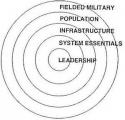Gentlemen,
The CNN special has been played several times over the past few weeks, and its initial showing was during prime time (2000hrs, or 8:00PM), but unfortunately I think Joe and Jane public at large aren't interested in real news stories, but will spend hours watching news of Paris Hilton's adventure in court and jail. Even she was surprised.
We talk about our youth being lost, but who the hell is guiding them? I think our adult population is just as lost. What type of example do we really set for our kids and the world at large? The media moguls are not young wayward kids, but greedy individuals with incredible power to shape popular opinion. The fact that the music media CEOs support select criminal rappers who endorse cop killing, girlfriend beating, killing folks who talk to the police, and drug use for the higher purpose of profit is telling. Wouldn't a responsible adult say not on my watch?
If I lived in a society that still had values, such as many Muslim societies (regardless if we agree with them), and I saw the type of culture that the West was promoting, I would be worried that if left unchallenged the West would corrupt my society, and my sense of identity. We tend to focus on the good that democracy, freedom, and free markets bring, and conveniently ignore the ugly side of it, but our enemies do not ignore it, and we need to address it honestly in our message if we're going to have credibility.
Of course the question is how do you get the media, which will remain the largest opinion shaper, to support more "Chicken Soup for the Soul" type entertainment where values are demonstrated? There is no profit in this, why watch the Waltons if I can turn the channel and watch 24, sports, Fox Entertainment, etc. We tend to bottom feed, and if bottom feed is available there will be a large market for it. Step one, we need to get off our high horse and face reality about ourselves, and express that we're all concerned about the loss of values (a point in common). This isn't a war, it is a social revolution, and in many ways we're feeding it with our talk of war. Muslims in England just don't opt to drive a car into an airport and set it on fire, then pour gasoline on themselves. The message of extremist is powerful, and we won't counter it with simple red, white, and blue slogans. We must take a hard and honest look in the mirror and try to see what our enemy sees when he looks at us. Winning the IO war is more than messages, but demonstrated behavior.



 . We have taken our pursuit of individual freedoms to a point where we have difficulty building consensus. We don't need to strip those freedoms, but we do need to convince ourselves its OK to both value your freedom and compromise on issues that must be addressed to perpetuate a cohesive society that groups like AQ and other threats seek to undermine. We must convince ourselves that a cohesive, pluralistic society is a benefit and not a burden, that it requires participation to function, and that it will not mend itself - its not a self-healing server.
. We have taken our pursuit of individual freedoms to a point where we have difficulty building consensus. We don't need to strip those freedoms, but we do need to convince ourselves its OK to both value your freedom and compromise on issues that must be addressed to perpetuate a cohesive society that groups like AQ and other threats seek to undermine. We must convince ourselves that a cohesive, pluralistic society is a benefit and not a burden, that it requires participation to function, and that it will not mend itself - its not a self-healing server.







Bookmarks